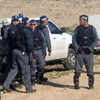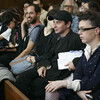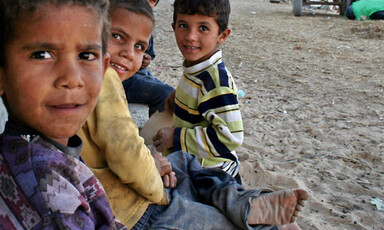
PCHR: Palestinian killed, 2 wounded, in weapons misuse
21 February 2007
PCHR’s preliminary investigation indicates that at approximately 8:50 on Wednesday, 21 February 2007, Mahmoud Awad El-Sumeiri (34) from Wadi El-Salqa village (east of Deir El-Balah) was killed by shrapnel throughout his body. The shrapnel was the result of the explosion of a homemade bomb that exploded when the victim handled it in a farm near his house. El-Sumeiri was taken to Al-Aqsa Martyrs Hospital, where he was pronounced dead upon arrival. He was transferred to the forensic medicine department at Shifa Hospital in Gaza City. Read more about PCHR: Palestinian killed, 2 wounded, in weapons misuse








